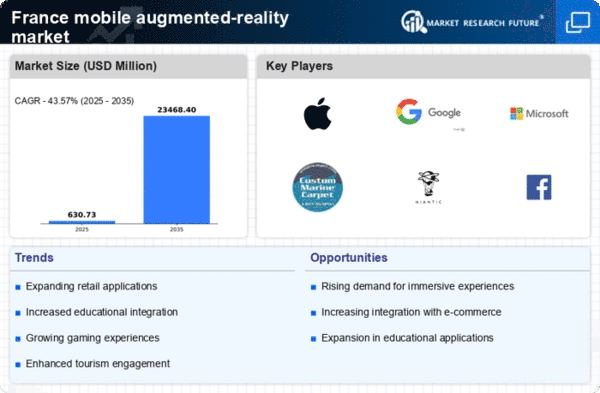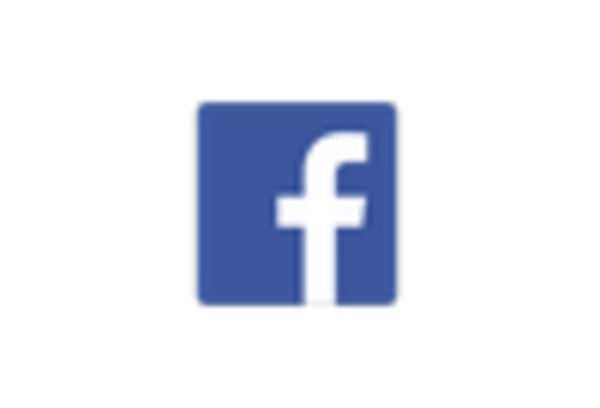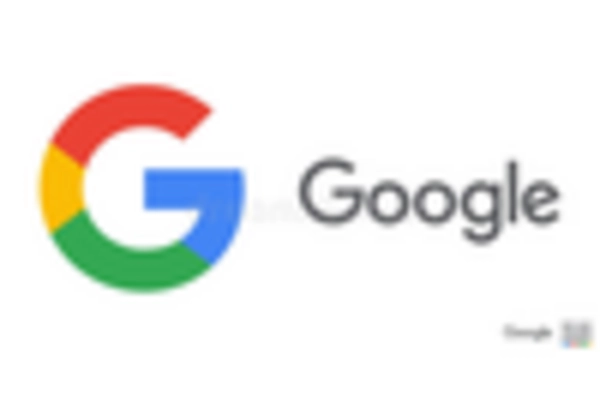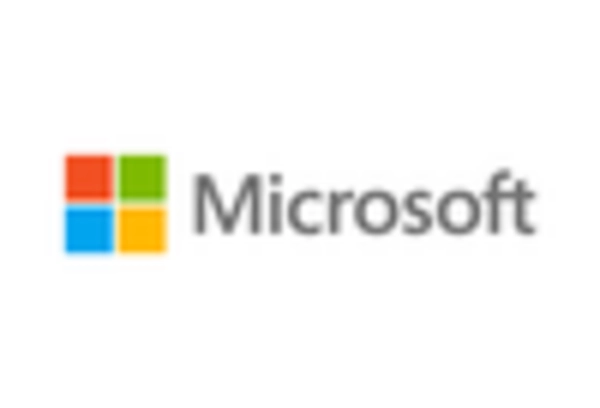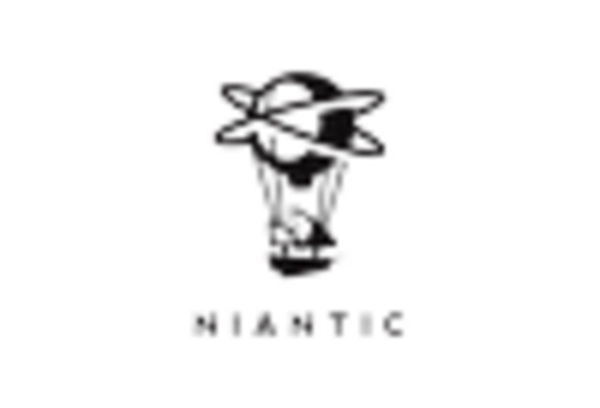Increased Investment in AR Startups
The mobile augmented-reality market is experiencing a notable increase in investment directed towards AR startups in France. Venture capital firms and tech incubators are recognizing the potential of AR technologies, leading to a surge in funding for innovative AR solutions. In 2025, investments in AR startups in France are expected to exceed €150 million, reflecting a growing confidence in the market's future. This influx of capital is likely to accelerate the development of new applications and services, fostering a competitive landscape. As startups innovate and refine their offerings, the mobile augmented-reality market is expected to benefit from a diverse range of solutions that cater to various industries, including retail, education, and entertainment. The trend of increased investment is indicative of the market's potential for growth and transformation.
Expansion of AR in Tourism and Travel
The mobile augmented-reality market is witnessing expansion in the tourism and travel sector, as AR applications enhance the travel experience for users. In France, a country renowned for its rich history and culture, AR is being utilized to provide interactive guides and immersive experiences at historical sites. For example, AR applications can overlay historical information and visuals onto real-world locations, enriching the visitor experience. This trend is supported by a growing number of tourists seeking innovative ways to explore destinations. The French tourism industry is projected to invest approximately €200 million in AR technologies by 2027, indicating a strong commitment to integrating AR into travel experiences. As the mobile augmented-reality market continues to evolve, it is likely to play a pivotal role in transforming how tourists engage with their surroundings.
Growing Interest in Interactive Marketing
The mobile augmented-reality market is benefiting from a growing interest in interactive marketing strategies among brands in France. Companies are increasingly leveraging AR to create engaging advertising campaigns that resonate with consumers. For instance, studies indicate that AR advertisements can enhance consumer engagement by up to 70%, leading to higher conversion rates. This trend is particularly evident in sectors such as fashion and cosmetics, where brands utilize AR to allow customers to virtually try on products. As businesses recognize the potential of AR to enhance customer experiences, investment in AR marketing solutions is expected to rise, further propelling the mobile augmented-reality market. The shift towards interactive marketing is likely to redefine how brands connect with their audiences, making AR an essential tool in their marketing arsenal.
Rising Demand for Remote Collaboration Tools
A rising demand for remote collaboration tools is driving the mobile augmented-reality market, especially in professional settings. As businesses in France seek innovative solutions to enhance teamwork and communication, AR applications are emerging as valuable tools for remote collaboration. These applications allow users to share and visualize information in real-time, bridging the gap between physical and digital environments. The market for AR collaboration tools is projected to grow by 40% annually, as organizations recognize the benefits of enhanced productivity and engagement. This trend is likely to encourage the development of specialized AR applications tailored for various industries, including architecture, engineering, and healthcare. As remote work continues to be a prevalent model, the mobile augmented-reality market is expected to play a crucial role in facilitating effective collaboration among teams.
Technological Advancements in Mobile Devices
The The mobile augmented-reality market is experiencing a surge. This growth is due to rapid technological advancements in mobile devices. Enhanced processing power, improved graphics capabilities, and high-resolution displays are enabling more sophisticated AR applications. In France, the penetration of smartphones with AR capabilities is projected to reach 75% by 2026, fostering a conducive environment for AR app development. This trend is likely to attract both consumers and developers, as the demand for immersive experiences grows. Furthermore, the integration of AR features in popular mobile operating systems is simplifying the development process, allowing for a wider range of applications. As a result, the mobile augmented-reality market is poised for significant growth, driven by the increasing availability of advanced mobile devices that support AR functionalities.


